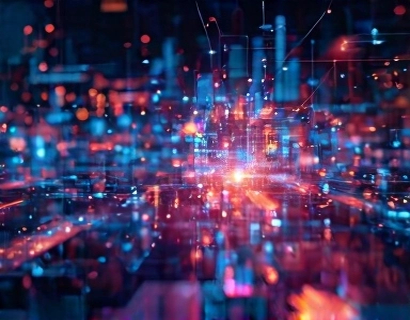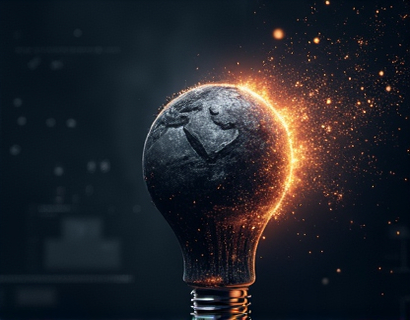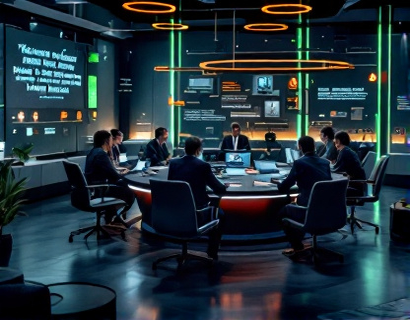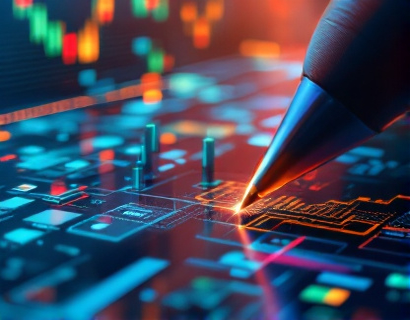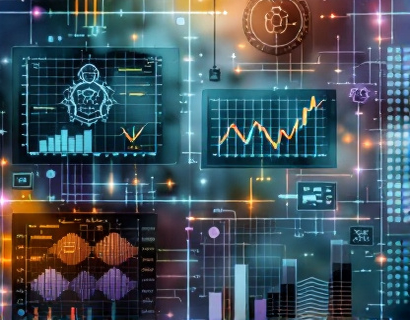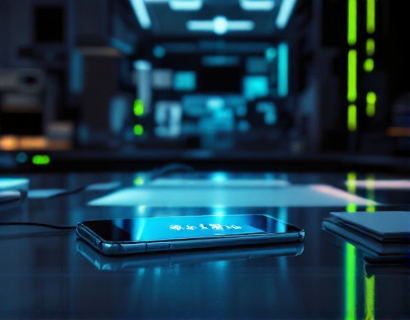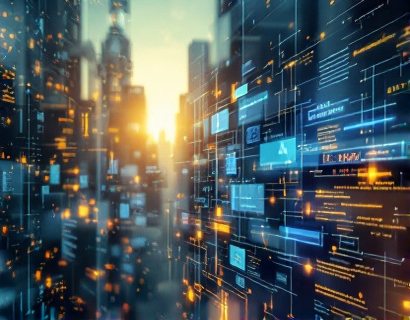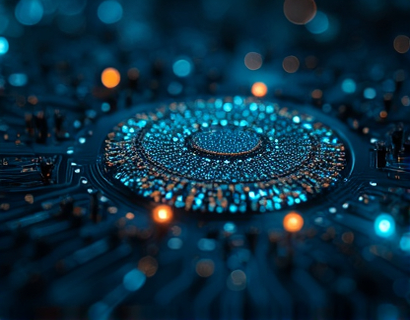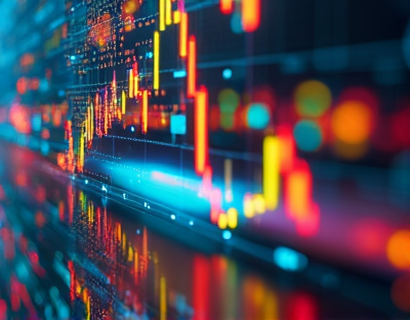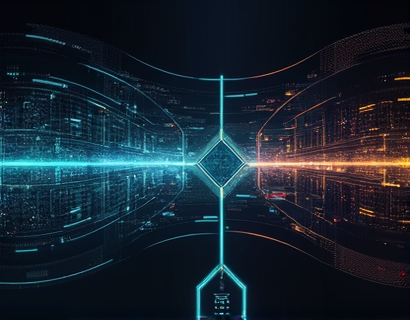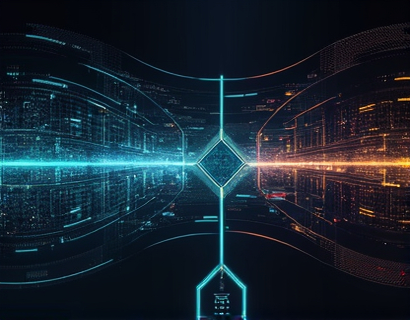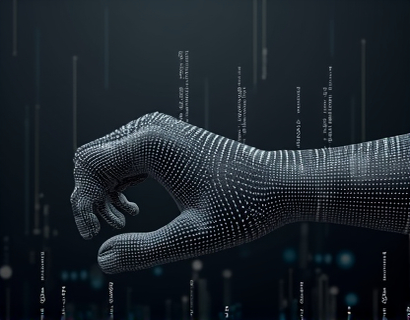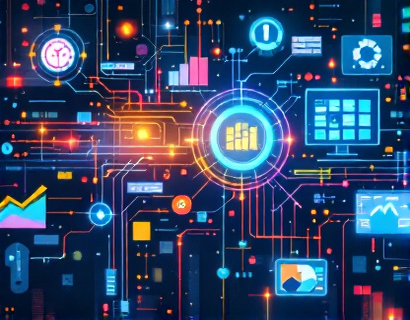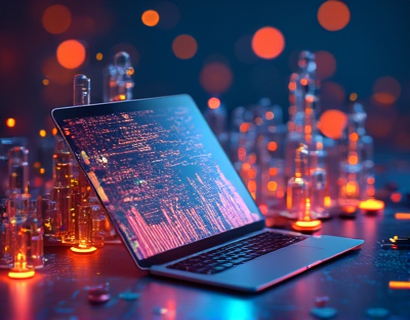Decentralized Innovation: Transforming Digital Experiences with AI and Crypto Integration
The intersection of artificial intelligence and blockchain technology is giving rise to a new era of digital innovation, one that promises to redefine how we interact with online services and platforms. This transformative fusion is not just about combining two powerful technologies; it's about creating a decentralized ecosystem where users have more control, transparency, and security. As tech professionals and enthusiasts, understanding this synergy is crucial for navigating the future of the digital landscape.
The decentralized economy, powered by blockchain, is shifting the paradigm from centralized control to a more distributed and democratic model. Traditional intermediary roles are being dismantled, allowing for peer-to-peer transactions and interactions. This shift is not only reducing costs and increasing efficiency but also empowering individuals and businesses to participate more actively in the digital economy. AI, with its ability to process vast amounts of data and learn from patterns, is enhancing this decentralized framework by providing intelligent, adaptive, and personalized experiences.
One of the key areas where AI and blockchain are making significant impacts is in identity management. Traditional identity systems are centralized, vulnerable to breaches, and often inflexible. Decentralized identity solutions, leveraging blockchain, allow users to own and control their digital identities. AI enhances this by providing robust authentication mechanisms, such as biometric verification and behavioral analysis, ensuring that only authorized users access sensitive information. This not only boosts security but also simplifies the user experience by reducing the need for multiple passwords and verification steps.
Another critical application is in the realm of smart contracts. Blockchain's smart contracts are self-executing agreements with the terms directly written into code. AI can optimize these contracts by analyzing vast datasets to predict outcomes, automate complex decision-making processes, and ensure compliance with regulatory requirements. For instance, in supply chain management, AI can track and verify the authenticity and origin of products, while smart contracts automate payments and ensure that all parties adhere to agreed terms. This combination reduces fraud, increases transparency, and streamlines operations.
The healthcare sector is also witnessing a revolution through the integration of AI and blockchain. Patient data, often fragmented and inaccessible, can be securely stored and shared using blockchain. AI algorithms can analyze this data to provide personalized medical insights, predict disease outbreaks, and optimize treatment plans. The decentralized nature of this system ensures patient privacy and data integrity, while AI enhances the accuracy and efficiency of medical diagnostics and research. This synergy has the potential to transform healthcare delivery, making it more patient-centric and effective.
In the financial industry, decentralized finance (DeFi) platforms are redefining traditional banking and investment models. AI-driven algorithms can analyze market trends, manage risks, and optimize trading strategies within a decentralized framework. This not only democratizes access to financial services but also reduces the reliance on intermediaries, lowering transaction costs and increasing speed. Blockchain ensures that all transactions are transparent and immutable, building trust among users. AI-enhanced KYC (Know Your Customer) processes further streamline onboarding, making financial services more accessible and secure.
The creative industry is another domain where AI and blockchain are making waves. Digital art and collectibles, such as NFTs (Non-Fungible Tokens), are gaining popularity, thanks to blockchain's ability to verify ownership and provenance. AI can assist artists in creating unique and innovative digital artworks, from generating visuals to composing music. These AI tools can analyze trends and user preferences, helping creators produce content that resonates with their audience. Blockchain ensures that artists receive fair compensation for their work, as transactions are transparent and traceable.
Gaming is yet another area experiencing a significant transformation. Decentralized gaming platforms leverage blockchain to create truly player-owned experiences, where in-game assets are represented as tokens on the blockchain. AI can enhance gameplay by creating dynamic and adaptive environments, personalized challenges, and intelligent NPCs (non-player characters). This not only improves the gaming experience but also opens up new revenue streams for developers through tokenized economies and in-game transactions.
The education sector is also benefiting from this technological convergence. Blockchain can secure and verify educational credentials, making it easier for students to prove their qualifications to employers and institutions. AI-powered learning platforms can offer personalized education paths, adaptive assessments, and real-time feedback, catering to the unique needs of each learner. This combination ensures that education is more accessible, efficient, and tailored to individual learning styles.
To fully harness the potential of AI and blockchain, it's essential to address the challenges and considerations involved. Scalability remains a significant issue for blockchain technology, as many networks struggle to handle high transaction volumes efficiently. However, advancements in layer 2 solutions and sharding are addressing these concerns, paving the way for more scalable decentralized applications. On the AI front, ethical considerations, such as bias in algorithms and data privacy, must be carefully managed to ensure responsible and equitable use.
Interoperability is another critical aspect. For decentralized systems to thrive, different blockchain networks and AI platforms need to work seamlessly together. Standards and protocols that facilitate cross-chain interactions and data sharing are essential for creating a cohesive and integrated ecosystem. This interoperability will enable more complex and powerful applications, breaking down silos and unlocking new possibilities.
The future of decentralized innovation is bright, with AI and blockchain continuing to push the boundaries of what's possible. As these technologies mature and become more accessible, we can expect to see even more groundbreaking applications across various industries. For tech professionals and enthusiasts, staying informed and engaged with these developments is key to staying ahead in the evolving digital landscape. Embracing the decentralized economy and leveraging the power of AI and blockchain will not only enhance digital experiences but also drive meaningful growth and innovation.





